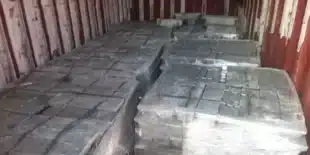The Israeli military refuted allegations of intentionally targeting journalists following a report that detailed an incident where a tank crew was accused of firing and subsequently killing a journalist, along with injuring others in Lebanon last year.
The statement came after the Netherlands Organization for Applied Scientific Research (TNO) suggested that Israeli troops likely engaged journalists with machine-gun fire following a fatal shelling event. This incident, which occurred near the Lebanese-Israeli border on October 13, resulted in the death of Reuters journalist Issam Abdallah immediately.
In addition to Abdallah, six other journalists from Reuters, Al Jazeera, and AFP sustained injuries. Among them, AFP’s 28-year-old photographer Christina Assi, later underwent a leg amputation.
Investigations conducted by AFP in December pointed towards the usage of a specific tank shell, exclusively operated by the Israeli army, in the attack. Concurrently, Reuters’ investigation, supported by preliminary TNO findings, indicated that two tank rounds fired from across the border were implicated.
TNO’s final report highlighted that the analysis of audio from an Al Jazeera video at the scene implicated 0.50-caliber rounds, compatible with Browning machine guns mounted on Israeli Merkava tanks, suggesting a Merkava tank might have fired both tank and machine-gun rounds at the journalists. However, the report noted uncertainty in conclusively determining the machine gun’s direction and distance.
Responding, the Israeli military clarified that its response to Hezbollah militants’ attacks involved both artillery and tank fire, aiming to neutralize the threat. They acknowledged receiving reports of journalists’ injuries post-operation and stated that the incident remains under review by military authorities.
Emphasizing the value placed on press freedom, the military also highlighted the inherent risks of war zones. Both Amnesty International and Human Rights Watch, labeling the southern Lebanon strike as likely originating from an Israeli tank, called for an investigation into potential war crimes, noting the clear identification of the journalists involved.


